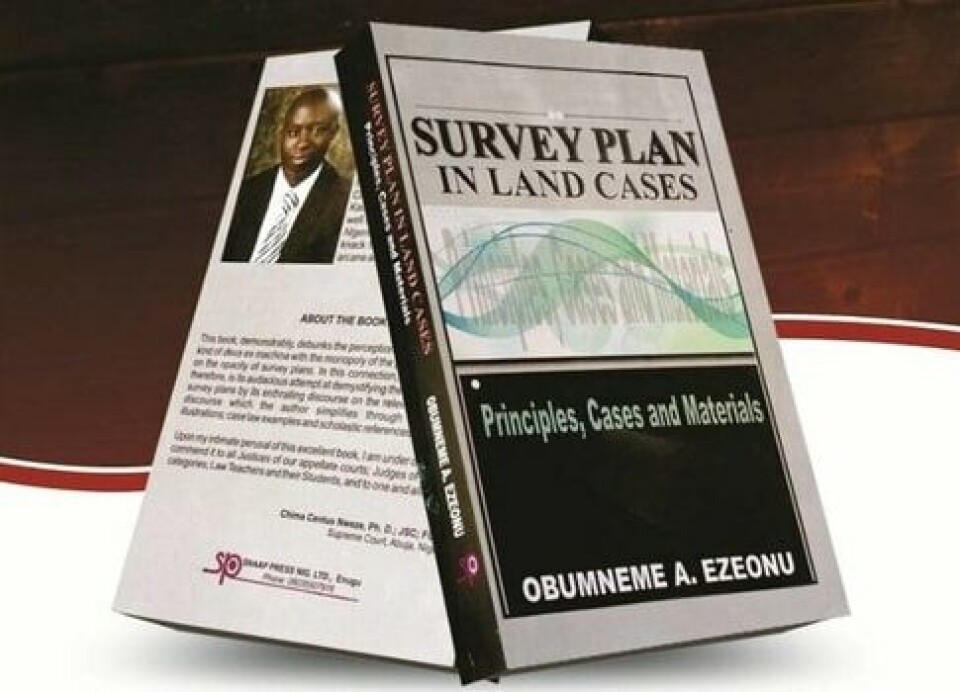Copyright : Re-publication of this article is authorised only in the following circumstances; the writer and Africa Legal are both recognised as the author and the website address www.africa-legal.com and original article link are back linked. Re-publication without both must be preauthorised by contacting editor@africa-legal.com
Complexities of Nigerian Law Unpacked by Author Lawyer

Legal scholar, author and lawyer, Aloysius Obumneme Ezeonu, has written prolifically on different aspects of law in Nigeria. He spoke to Ugochukwu Kingsley Ani about combining his love for the written word with his passion for law.
You have written three books with more in the pipeline. How have you found the balance between legal scholarship and running your practice?
I streamlined my practice earlier on and only take on the kind of work I love to write about. Because I specialise, I am able to carve out time to write books and journal articles since I already work within the areas of my interest. So, combining both active legal practise and writing has been easy. Plus, I have a passion for writing.
Which are your areas of interest in law?
I love land litigation and probate. I take briefs in these areas and write them up, particularly for the appellate courts. I have written books on these two areas and am researching more.
Which aspect of law are you looking at with your current project?
I am working on Execution of Documents: Signing and Intricacies which is on Evidence Law. I am also working on Common Mistakes in Conveyancing. The next project that is taking up my time is Originating Processes: Law & Practice. However, the major project I am working on is Elements of Pleadings.
You have released three legal books so far, how were they researched?
Well, two of the works were areas I had deep interest in, so I had materials handy. It was easy to start and finish those. The third was possible because it involved the expansion of a journal article I had written and which was well received; I decided to flesh it out.
Which of your projects are more deeply applicable to the Nigerian legal profession?
These would be two texts Probate Practise in Nigeria: A Practical Approach and Survey Plans in Land Cases in Nigeria: Principles, Cases and Materials. The reason for the latter is because survey plans - and their uses - are like science; they cut across all states in Nigeria. Plus, no book has been exclusively written/dedicated to survey plans in land litigation in Nigerian courts. Even surveyors are keying into it, as many of them have had to give evidence in land cases in the courts. The book on probate practise is technical and revolutionary: it covers both common-form probate and solemn-form probate practise.
Do you believe your work contributes to the development of the law in Nigeria?
Yes, I’d say that because my opinion has been sought by judges and litigation lawyers handling matters in the High Courts and appellate Courts, particularly with reference to Probate Practise in Nigeria: A Practical Approach and Survey Plans in Land Cases in Nigeria: Principles, Cases and Materials. Furthermore, sales statistics, particularly for the second book, have shown it resonates with the legal profession.
Lawyers have a major role to play in developing sound government across Africa. Could you give your opinion on where this is happening effectively?
Well, at least in Nigeria, there is an influx of lawyers into the legislature, drafting our national bills. This can improve the quality of the laws passed by the House. Furthermore, lawyers’ participation in election petitions has helped to create a growing jurisprudence in that area.
What is your impression of the state of the legal system in Nigeria?
It is in a state of chaos…in a way! We operate a federal setup, so a lot of things need to be streamlined for the entire country. We have radical differences in our operating codes; for example: the High Court Rules in each state are different even though we are all in the same country. This can be tied to the different societal systems we operate.
What would you do to make it better?
I would advocate for a Uniform Probate Code, at least. I would also resuscitate attempts made by previous revisionists to enthrone a uniform Civil Procedure Rules to make High Court practice across Nigeria less cumbersome.
Why did you study law especially when you had a first class degree in Philosophy?
My brother, Professor Emeka Francis Ezeonu, thought that with my background in philosophy, I would make a good lawyer. He advised me to study law. When I thought about it, I recalled some of my philosophy classes where I had encountered philosophers with different legal theories. I felt then that Law was a kindred course to philosophy. I tested it out, and here I am.
Which university did you attend?
Nnamdi Azikiwe University in Awka (500kms east of Lagos)
Could you talk us through one or two of the more remarkable experiences you have had?
Well, I had the thrill of learning advocacy and cross-examination earlier on in my practice. It was fun learning non-contentious motions, then contentious motions. It was great writing them; settling pleadings and building confidence in my skills as a litigator as I moved on with the case.
To read more Nigerian focused interviews please click here
